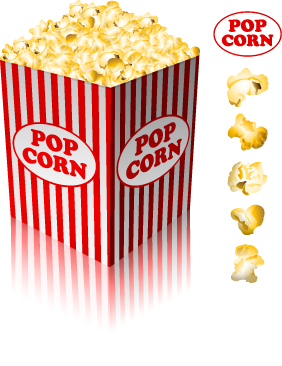Tag: scientific
How to Learn Chinese While Sleeping
14.12.2013 14:31:06

Please do read on! This blog post will not waste your time with unscientific babbling.
Is it really possible to do so-called "sleep-learning"? What is sleep-learning? In short, sleep-learning is to listen to some audio recording while you're asleep, in the hope that you'll somehow recall the content when you wake up.
Most scientific tests of sleep-learning a language, have only proven questionable. Most of the time you are - at best - not deprived of a good night's sleep.
Since I can't recommend sleep-learning, what then is the point with this blog post? The title is "How to Learn Chinese While Sleeping".
Fail-safe sleep-learning lacks scientific backing, but that doesn't mean sleep can't be taken advantage of, when learning Chinese.
How to Take Advantage of Your Sleep to Learn More Chinese?
Scientists agree that when we are asleep our brains work hard to tidy up all the day's new impressions and experiences. You may even have noticed this yourself.
Many sleep-walkers or talkers find that after an especially stressful day, they sleep-walk or sleep-talk about related matters to a greater extent than they would normally do. Perhaps you even tried this yourself?
I think we have taken this piece of science down to a very low-practical level now, haven't we? So how might we apply it to Chinese learning?
It is in fact, quite simple. There are two things to it.
Focus While You're Studying
First, when you sit down and learn some Chinese, make sure your brain gets "strained" enough by it, for it to feel the need to process it at night. If you're being lazy and don't really care to focus on it, then your brain will be less likely to allocate the needed resources for it. Whereas if you push yourself a little extra, motivate yourself and try harder - then your brain will work with it even at night. Don't believe me?
Here is a firsthand experience. Approximately a year and half after I started learning Chinese, I and a fellow Chinese-learner shared a hostel-room. After the first night, my friend told me that I had been quoting parts of some the text that we had be reading weeks earlier. True, my quotation was short, but who knows how much else had been processed by my brain while I was fast asleep?
So the first thing to do to cash in on your sleep, is to focus and concentrate while you are spending time learning Chinese anyway.
Study Every Day
The second thing you can do to take advantage of your sleep, is also very low-practical. It is to make sure to study every single day. Why is that?
Imagine if you're studying Chinese for 2 hours every Monday only. Then on Monday night your brain will be busy trying to tidy up and process all the new Chinese you've fed it. However, chances are that it's more than your brain can handle. So you suffer a memory leakage. Your memory may only retain a small part of what you have studied. In other words, much of the 2 hours spent, is not made optimal use of.
The better way to do it, is to spend 15-20 minutes a day on Chinese learning. That would also be a lot easier to overcome. Why is this better?
If you're learning a little Chinese every day, then you will make good use of your sleep every night as well, instead of just one night during the whole week. This is really the key to learning Chinese while sleeping. Learn a little Chinese every day and focus while doing so.
Not only would you take advantage of your sleep as much as possible, you would also avoid overloading your brain. 15-20 minutes of learning will probably be digestible and retainable for most persons. Of course it varies from person to person, depending on age and other factors.
Conclusion
What is the fail-safe method to sleep-learn Chinese? (No, it is not to disturb a good nights sleep with some Chinese MP3 during the night.)
You should not try to learn Chinese by studying once a week for hours in a row, only able to concentrate during the first 30 minutes.
Rather, study a little Chinese every day. You will experience wonders language-wise, even if you just spend 15-20 minutes a day. Also, do make those minutes count - concentrate and put your brain at work.
How the science of popcorn can help you learn Chinese pronunciation
11.12.2013 14:30:52
 Are you aware that some of the most recent scientific studies on popcorn can benefit your Chinese learning?
Are you aware that some of the most recent scientific studies on popcorn can benefit your Chinese learning?
It's not a joke.
You may already have heard about the discovery. Eating popcorn in the cinema makes you partly immune to the advertising before the actual movie. Why is that? And what does it have to do with learning Chinese?
One might first think the reason is as simple as that the munching of popcorn simply distracts the viewer. But there is more to it than that.
Anytime we see or hear a word, our facial muscles automatically and very discreetly/silently practice its pronunciation. This subconscious repetition aids your memory. But if your mouth is busy chewing popcorn, then no practicing happens, and you don't remember the advertisement's message that well.
(You may read more about the popcorn discovery here)
How to apply the popcorn science on learning Chinese
The question is, how does this apply to learning Chinese pronunciation?
The answer is: Don't attempt to learn Chinese just by studying a book. Use your mouth as much as possible. Your greater memory muscle (your brain) is connected to your sound-producing muscles. So feed your memory with some more food-for-subconscious-thought by semi-silently practicing Chinese pronunciations.
If subconsciously repeating words heard and seen in an advertisement, can more or less manipulate you into buying some unnecessary product, then just imagine what a conscious effort could do for your Chinese!
But how?
All right, so that is all very good, but how to actually go about this in an already very busy daily routine?
If your "inner (reading) voice" is not very active, then make it a habit to read out loud (or even just whisper) the Chinese words you see around you. If you're not living in a Chinese-speaking area, then add some more Chinese to your current surroundings. Place post-it notes with Chinese words in your home - and be careful not to ignore them. You can put some on your fridge, beside your bed, remote controllers, shoes, on doors, bathroom etc.
Of course this will do little to make you fluent in Chinese, but it will help your brain memorize pronunciations of Chinese words. This is a necessary building block to achieving greater Chinese proficiency.
Except from covering your home and office with post-it notes, you can also resort to traditional reading. Find some Chinese texts that are somewhat challenging for you to understand, and practice reading it. Your brain will subconsciously absorb both the pattern and rhythm of the language. Don't forget to read it out loud. Unfortunately, I'm not able to provide supporting evidence for this, but I'm convinced that reading out loud will yield 10 times better results than silent reading.
When I started learning Chinese, I was generally fond of reading out loud, so I naturally did the same with the Chinese texts I had to study. My Chinese reading ability was obviously very limited, but it still did me very good to read out loud. In the beginning I didn't feel any significant difference, but looking back after a few years it is clear that loud reading helped me a lot.
Before you memorize pronunciation too well, you may want to compare with the Standard Mandarin software, to make sure you're learning it properly right from the start. Otherwise you'd have to attempt unlearning wrong pronunciation later, which can be very hard.
Isn't it nice that we are able to apply this discovery made by the advertising business on the non-commercial activity of learning Chinese?
What is the difference?
Will reading this make a difference for your Chinese learning?
Please share your thoughts in the comment box below.
You may already be doing as suggested above. If so, perhaps you'd like to share your thoughts on its effectiveness.
